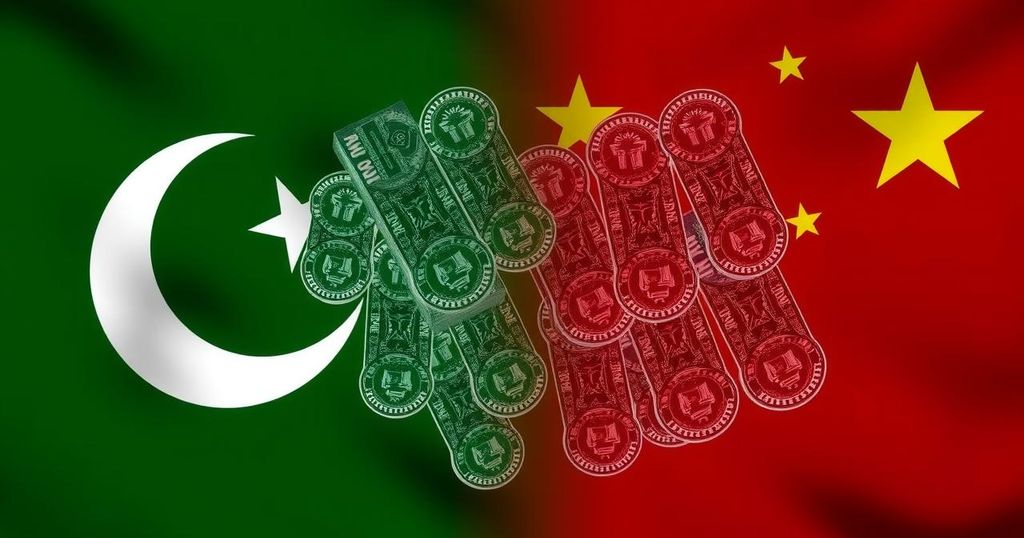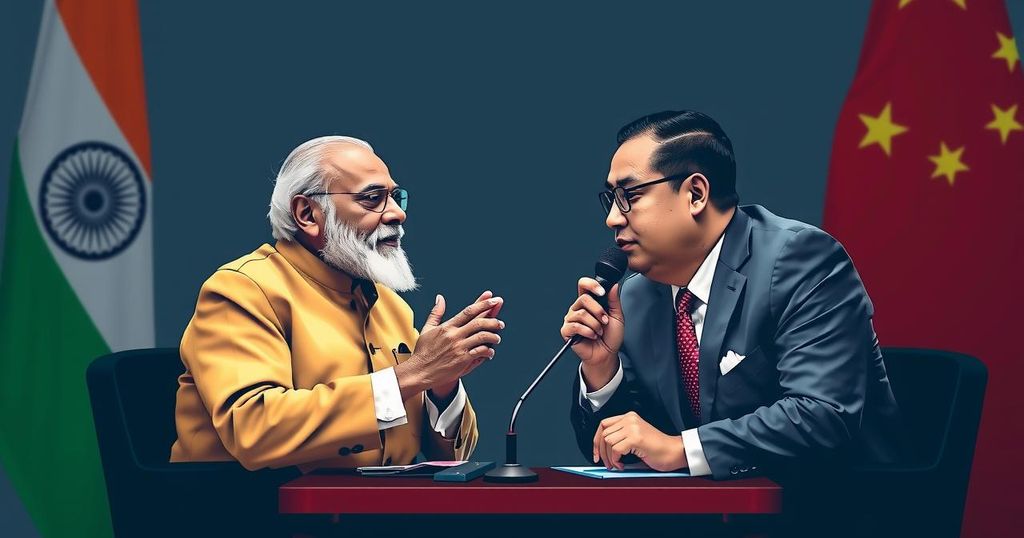Pakistan Seeks to Enhance Currency Swap Agreement with China
On October 27, 2023, in Washington DC, Pakistan’s Finance Minister Muhammad Aurangzeb requested China to raise the currency swap agreement limit to 40 billion Yuan. He expressed gratitude for China’s support and outlined plans to issue a Panda bond in China. Discussions focused on enhancing investment relations, payment systems integration, and securing investments from Chinese firms in Pakistan.
On October 27, 2023, in Washington DC, Pakistani Finance Minister Muhammad Aurangzeb formally requested the Chinese government to increase the limit of the currency swap agreement between the two nations to 40 billion Chinese Yuan. This was communicated during a meeting with Liao Min, the Vice Minister of Finance from China. Minister Aurangzeb emphasized Pakistan’s dedication to fortifying the strategic collaboration between Pakistan and China. He expressed sincere appreciation for the unwavering support provided by China in enhancing Pakistan’s socio-economic landscape and aiding in the acquisition of the International Monetary Fund’s Extended Fund Facility (EFF). Minister Aurangzeb conveyed Pakistan’s eagerness to learn from China’s extensive experience in economic reforms and welcomed BYD, a Chinese auto manufacturer, to launch electric vehicles in Pakistan. Furthermore, Minister Aurangzeb disclosed that Pakistan plans to issue its first Panda bond in the Chinese market, aiming to diversify its financing avenues. During discussions, Aurangzeb assured Chinese representatives of the safety of Chinese personnel working in Pakistan and noted the significant interest from Chinese companies in expanding their ventures within the country. He highlighted the necessity for online payment settlements and the integration of the payment systems of both nations. Moreover, the Finance Minister engaged with Andrew Torre, the Regional President for VISA, commending their contributions towards modernizing Pakistan’s payment landscape, particularly their support for local platforms like 1Link. Aurangzeb praised VISA’s introduction of the Financial Inclusion Card in collaboration with Meezan Bank, underlining the importance of multiple routing options to foster fair competition in domestic transaction processing. Additionally, Finance Minister Aurangzeb met with Mohammad Kallala, the Global Head of Corporate and Investment Banking at Natixis, who elaborated on the bank’s activities in critical sectors such as infrastructure, renewable energy, and telecommunications, among others. Discussions were held regarding possible partnerships with Gulf investors, focusing on financing and advisory services for investment ventures in Pakistan. Kallala expressed intent to partner with prominent Pakistani enterprises to boost these investments. Both parties concurred on the significance of maintaining a steady engagement moving forward.
This article focuses on the ongoing economic collaboration between Pakistan and China, particularly highlighting Pakistan’s request to increase the currency swap agreement—a financial arrangement that allows the two countries to exchange currencies directly without the need for a third currency. This agreement is pivotal for stabilizing market fluctuations and streamlining trade processes, particularly during economic turmoil. Minister Muhammad Aurangzeb’s interactions with Chinese financial leaders underscore the broader aim of enhancing bilateral relations through economic partnerships, exploring new financial instruments such as Panda bonds, and encouraging investment from Chinese firms into the Pakistani market.
In conclusion, Finance Minister Muhammad Aurangzeb’s request to raise the currency swap agreement limit to 40 billion Yuan reflects Pakistan’s commitment to strengthening economic ties with China. The discussions held with various financial leaders emphasize the importance of collaborative efforts in enhancing payment systems, attracting investments, and leveraging China’s experience in economic reforms. These moves not only signify a step towards economic diversification for Pakistan but also aim to ensure the security and integration of international financial frameworks.
Original Source: www.aninews.in








Post Comment